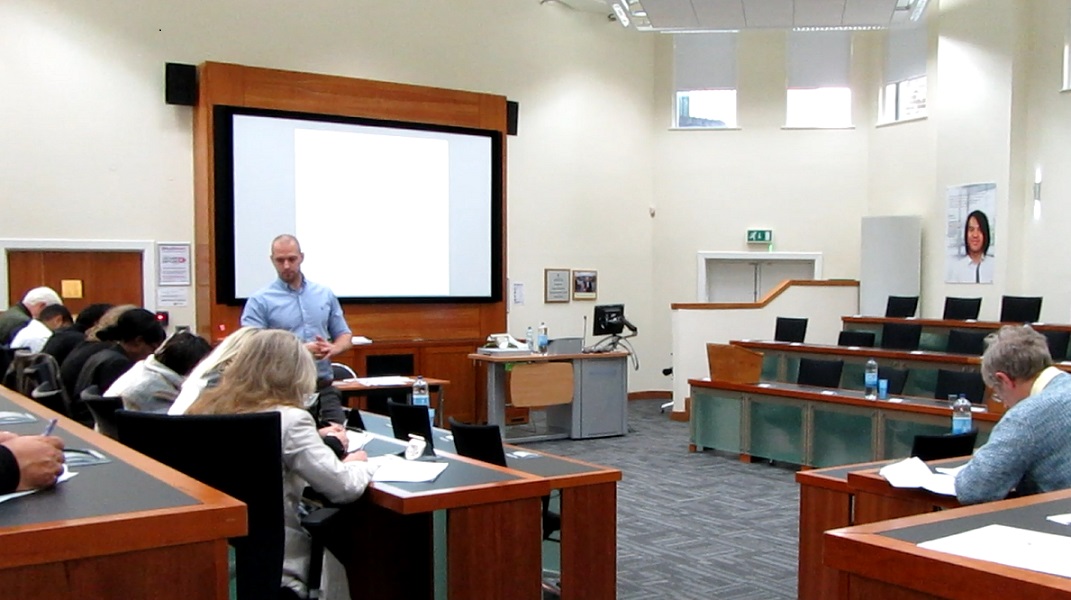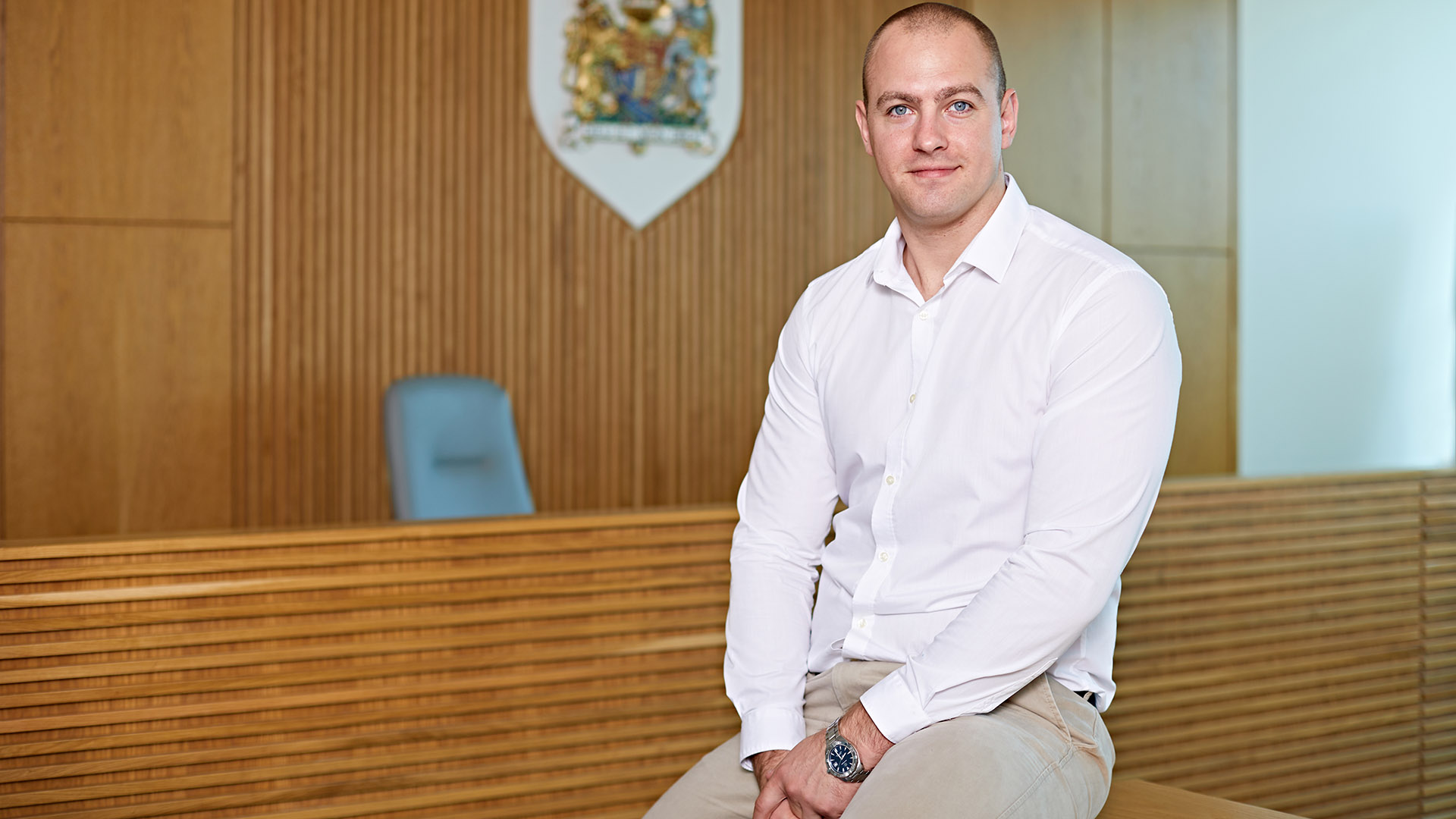Tackling jury bias in rape trials
Are the preconceptions that jurors hold about rape affecting the outcomes of trials? Groundbreaking research by Dr Dominic Willmott suggests that the answer to that question is ‘yes’ – and his work has led to discussions with UK’s key law makers and law enforcers that could result in significant changes to how rape trials are run.
The results of a series of mock trials, based on real cases and organised by Dominic, plus survey work around them went towards the PhD he completed in 2017. It showed that the attitudes towards rape mean that jurors are not as impartial as often thought, and that the decisions they came to were based on their previously held beliefs about rape – and not on trial evidence or deliberations.
Because of the findings, the possibility that rape trials are held in front of only a judge rather than a jury is being discussed at a high level.
The study has become known as ‘the Huddersfield Research’ in legal circles, and Dominic has spoken about it with agencies including the Crown Prosecution Service, the Ministry of Justice and the Judicial Office. He also presented to an audience including Metropolitan Police Assistant Commissioner Martin Hewitt, national police lead for adult sexual offences, at New Scotland Yard in July 2018.

“The agencies I am speaking to – in government and in the police – have told me they are on board with what the research has shown,” says Dominic. “It has given them a rigid evidence base to work from and which some claim they have long since needed, to bring about real change.”
Simulated trials
Dominic hit upon an innovative to way to test his theories about jury bias. Helped by then supervisor Professor Daniel Boduszek, he arranged a series of simulated one-day trials held in the Law School’s Mock Courtroom and George Buckley lecture theatre at the University. Huddersfield students and residents were recruited as jurors to hear proceedings from a real trial, first on video, and later in more depth by using professional actors.
Real-life barristers and judges also participated, and the jurors were surveyed on their attitudes towards rape before and after the trials. These findings were then assessed along with the verdicts, which was most frequently a ‘not guilty’ outcome.
This screening showed that not guilty verdicts were commonly underpinned by the concept of ‘Rape Myth Acceptance’ – agreeing with commonly-held beliefs, such as that most rape victims are attacked by strangers. In fact, 90% of victims do know their attacker.

Rape myths affecting verdicts
“We found that Rape Myth Acceptance was significantly predictive of not guilty verdicts. This shows that assumptions we have about the impartiality of jurors is inaccurate,” declares Dominic. “The evidence from these simulations was that the views held by the juror when they enter the courtroom explain their verdicts - regardless of the evidence and deliberation jurors undertake.”
The simulated trials even included the judges instructing juries that their decisions should only be based on the evidence shown to them. “What we found is the judge’s direction had no effect whatsoever,” Dominic adds. “Rape myths are constructed over long periods of time, from a young age. They are deep rooted, like racist attitudes, so any direction a judge gives, or a leaflet given pre-trial, is unlikely to change that. It won’t work.”
The answer may be that rape cases be heard by a judge rather than in front of a jury, but as Dominic adds, “Can we trial a different style of justice in rape cases? That would require a major change to 800 years of law.”
Rape myths are deep rooted
Dominic has met with several MPs, leading to the prospect of the issue being raised in Parliament. And his doctoral thesis continues to have an influence, with Dominic speaking to the Northern Ireland Assembly about their work following a high-profile rape case in the province early in 2018.
“Martin Hewitt is an assistant commissioner for the Met and the national lead in terms of rape prosecution and policing in the UK – and he agrees that there’s a problem with jurors in these trials. Our research is the most realistic replication ever done in the UK, and from it there is a real opportunity for genuine policy change, meaning a greater number of rape victims may get the justice they deserve.”
Partners
St John's Buildings Barrister's Chambers, Manchester - Nigel Booth.

Dominic Willmott
Research Fellow, Department of Psychology, School of Human & Health Sciences
Dominic joined the University in 2017 as a Research Fellow within the None-in-Three Research Centre for Gender-Based Violence, and previously held teaching and research posts at the University of Chester, Leeds Trinity University and the Universtiy of Essex. He is a member of the Quantitative Research Methods Training Unit (QRM-TU) and with a specialism in Legal and Criminal Psychology, his research is focused upon the application of psychological principles within criminal justice domains. His primary area of expertise relates to jury decision making and the role of psychosocial factors within the courtroom.
Autumn 2018 issue
Return to the home page for the Autumn 2018 issue of Discover.
Autumn 2018 issue
Return to the home page for the Autumn issue of Discover.
Next article
Find out how a University-based record label is earning a global reputation in the field of experimental and contemporary music.